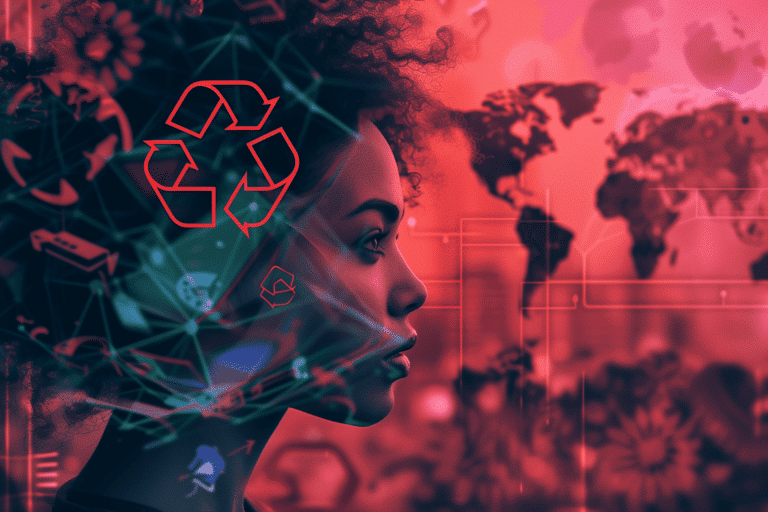In a rapidly evolving business landscape, companies around the world are increasingly integrating artificial intelligence (AI) to enhance their corporate social responsibility (CSR) initiatives. This development is transforming the way companies approach their social and environmental responsibilities and is leading to significant changes in various sectors. The use of AI in CSR practices is particularly evident in industries such as manufacturing, finance and retail, where AI-powered tools are helping companies to achieve their CSR goals more effectively and transparently.
The impact of AI on CSR initiatives
Environmental sustainability is one of the most important areas where AI is playing a role. Companies are using AI to reduce their carbon footprint and optimize resource consumption. For example, AI-driven analytics can monitor energy consumption and detect inefficiencies in real time, allowing companies to take immediate corrective action. This not only helps to reduce energy costs, but also minimizes the impact on the environment. In addition, AI is being used in supply chain management to ensure sustainable sourcing of materials, reduce waste and improve the overall sustainability of operations.
AI technology also improves transparency and accountability in CSR activities. With AI-powered data analytics, companies can track and report their CSR activities more accurately. This level of transparency is critical to gaining the trust of stakeholders, including customers, investors and regulators. For example, blockchain technology, a branch of AI, creates immutable records of CSR initiatives, ensuring that all reported activities are verifiable and tamper-proof. This improves the credibility of CSR reports and helps to identify areas in need of improvement.
In addition to environmental initiatives, AI also plays an important role in social welfare programs. Companies are using AI to design and implement programs that address social issues such as education, healthcare and poverty alleviation. For example, AI algorithms can analyze large data sets to identify trends and gaps in education systems, allowing companies to tailor their CSR efforts to specific needs. Similarly, AI-powered health diagnostics are being used in remote and underserved areas to provide timely medical assistance, significantly improving healthcare outcomes.
Despite the numerous benefits, the integration of AI into CSR is fraught with challenges and ethical considerations. There is growing concern about the potential for AI to perpetuate bias if not properly managed. Companies need to ensure that their AI systems are transparent, fair and unbiased. This requires continuous monitoring and the establishment of ethical guidelines for the use of AI in CSR activities. In addition, there is the challenge of data privacy, as AI often involves the collection and analysis of large amounts of personal data. Companies need to carefully address these issues to maintain public trust and comply with regulations.
The role of AI in CSR is expected to continue to grow. As AI technology advances, its CSR applications will become more sophisticated and comprehensive. Future innovations could include AI-driven predictive analytics to anticipate social and environmental challenges and more advanced machine learning models to optimize CSR strategies. Continued collaboration between AI experts, business leaders and policy makers will be crucial to harness the full potential of AI and achieve positive social impact.
In summary, the integration of AI into corporate social responsibility represents a significant step forward for companies seeking to make a meaningful impact on society and the environment. By using AI, companies can strengthen their sustainability efforts, improve transparency and develop more effective social welfare programs. However, this must be done carefully, taking into account ethical implications and a commitment to maintaining public trust.






